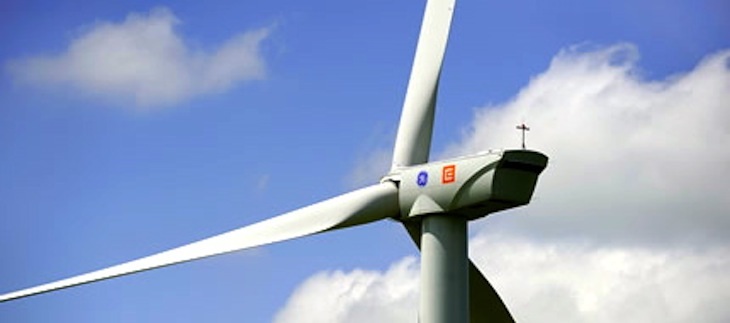SWEPCO to ask Louisiana to approve $4.5 billion Wind Catcher project
by April 13, 2018 3:40 pm 659 views

Southwestern Electric Power Co. (SWEPCO), a company of Columbus, Ohio-based American Electric Power (AEP), will ask the Louisiana Public Service Commission (LPSC) to approve the proposed Wind Catcher Energy Connection project.
On Friday (April 13), SWEPCO, which is based in Shreveport, La., announced a settlement agreement that includes the utility company, LPSC staff, Bentonville-based Walmart and Sam’s Club, and they will ask the project be approved under the agreement terms. On Feb. 20, an agreement was filed with the Arkansas Public Service Commission for review of the project. SWEPCO needs approval from Louisiana, Arkansas and Texas, while sister company Public Service Company of Oklahoma (PSO) needs approval from Oklahoma.
The $4.5 billion Wind Catcher project includes the purchase of a 2,000-megawatt wind farm under construction in the Oklahoma Panhandle and construction of a 360-mile transmission line to Tulsa, where the existing grid will deliver the wind energy to customers. SWEPCO will own 70% of the project, and PSO will own 30%. SWEPCO recently responded to a group that opposes the project.
“We are extremely pleased with this settlement agreement as the Wind Catcher project is an exceptional opportunity to reduce customers’ electric bills, bring more clean affordable energy to homes and businesses, and further diversify the generation resources serving our Louisiana customers,” said Brian Bond, vice president of external affairs for SWEPCO.
SWEPCO has agreed to cap construction costs, qualify for 100% of federal Production Tax Credits and have minimum annual production amounts for the project. “These guarantees demonstrate our commitment to providing the benefits of the Wind Catcher project,” Bond said.
“Walmart has a goal to be supplied by 100% renewable energy, and sourcing from wind energy projects — like the Wind Catcher project — is a core component in the mix,” said Mark Vanderhelm, vice president of energy for Walmart. “The energy procured by SWEPCO from this project represents an important leap forward on our renewable energy journey.”
The net savings for SWEPCO customers is more than $4 billion over the 25-year life of the wind farm, according to a news release. The savings includes no fuel cost for wind, which decreases the utility’s overall fuel and purchased power costs; full value of the federal Production Tax Credit, which is available for construction of new wind farms; and delivery of wind energy to customers through the new transmission line. In 2021, customers will start to see savings in their bills, with a reduction in the fuel portion of the bill.
“Those savings translate into positive economic impacts for Louisiana — savings for families, businesses and communities, as well as lower electricity costs that help power economic development,” Bond said. “Businesses that are looking to relocate or expand usually have electricity costs at the top of their lists of deciding factors.”
GE Renewable Energy will provide 800 of its 2.5-megawatt wind turbines for the project, and many of the turbine blades, towers and generator frames will be built in Arkansas, Louisiana and Texas, the release shows. It will be the largest single-site wind project in the United States, and Invenergy is building it in Cimarron and Texas counties in the Oklahoma Panhandle. SWEPCO and PSO expect to purchase the facility in the fourth quarter of 2020.
“The Wind Catcher project is tapping into one of the best wind resources in the country, and the dedicated power line will deliver the renewable energy efficiently, reliably and cost-effectively to the existing electric grid serving our customers,” Bond said.
SWEPCO will not only need approval of the project from utility commissions in Arkansas, Louisiana, Texas and Oklahoma, but it also will need approval from the Federal Energy Regulatory Commission. SWEPCO serves 532,000 customers in western Arkansas, northwest and central Louisiana, northeast Texas and the Texas Panhandle.
